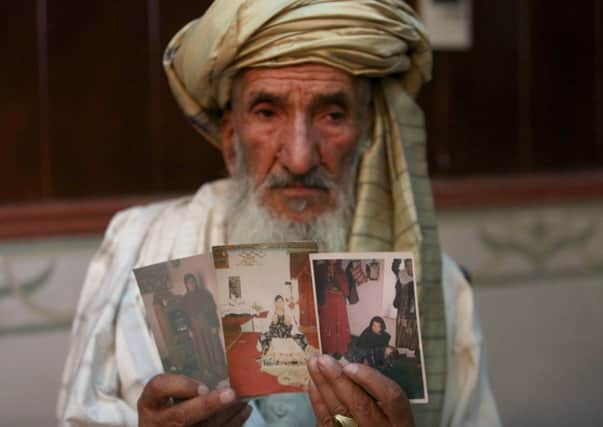US fails to bring troops to justice, says Amnesty


At least 1,800 Afghan civilians have been killed by coalition troops between 2009 and 2013, Amnesty said in a report released in the Afghan capital yesterday, but only six cases against US military personnel went to trial over the period.
Several families seeking justice from the US government attended a conference in Kabul to give dramatic accounts of their experiences of loss and torture, among them burqa-clad women who had survived an air strike.
Advertisement
Hide AdAdvertisement
Hide Ad“The US military justice system almost always fails to hold its soldiers accountable for unlawful killings and other abuses,” Richard Bennett, Asia-Pacific director for Amnesty, said in a statement. “Thousands of Afghans have been killed or injured by US forces since the invasion, but the victims and their families have little chance of redress.”
However, the US department of defence said troops go to extraordinary lengths to avoid civilian casualties and it took all credible reports of injuries and deaths seriously.
“The United States has investigated US military personnel and civilian personnel, including contractors, for civilian casualties that are alleged to be not incident to lawful military operations,” said a spokeswoman, US navy Commander Amy Derrick-Frost. Victims at the conference told of how they witnessed the killing of family members in night raids and survived torture by US troops.
Mohammad Saber, from the eastern province of Paktia, recalled the moment when US forces arrested him and three others in a raid on his home after a party. Mr Saber’s wife, sister and niece were shot dead on the spot, while his brother and nephew were left to die of their wounds and he was taken away for questioning with the three men.
“We should not let this go unanswered, those who killed my family must be punished,” he said, choking on his words. “The Americans call the Taleban terrorists but they are themselves terrorists for raiding homes and committing atrocity.”
Most US forces, along with coalition troops, will leave Afghanistan by the end of the year, and the country’s western backers hope a deadlock between rival presidential candidates will be broken before a key Nato summit in early September.
Another victim described being among a group of 18 people who were tortured, and some killed, in Wardak province, an hour’s drive from Kabul, when they were arrested in a raid by US special forces. “Their clothes were taken off, their legs were stretched out and they were beaten,” said Qand Agha, an elderly man with a slight frame, grey beard and turban.
“I was sitting in a room when they were all getting killed in front of me and then put in black body bags.”
Airstrikes caused more than half the casualties documented over the five years ending in 2013, among them many women and children, and families were still hoping for justice.